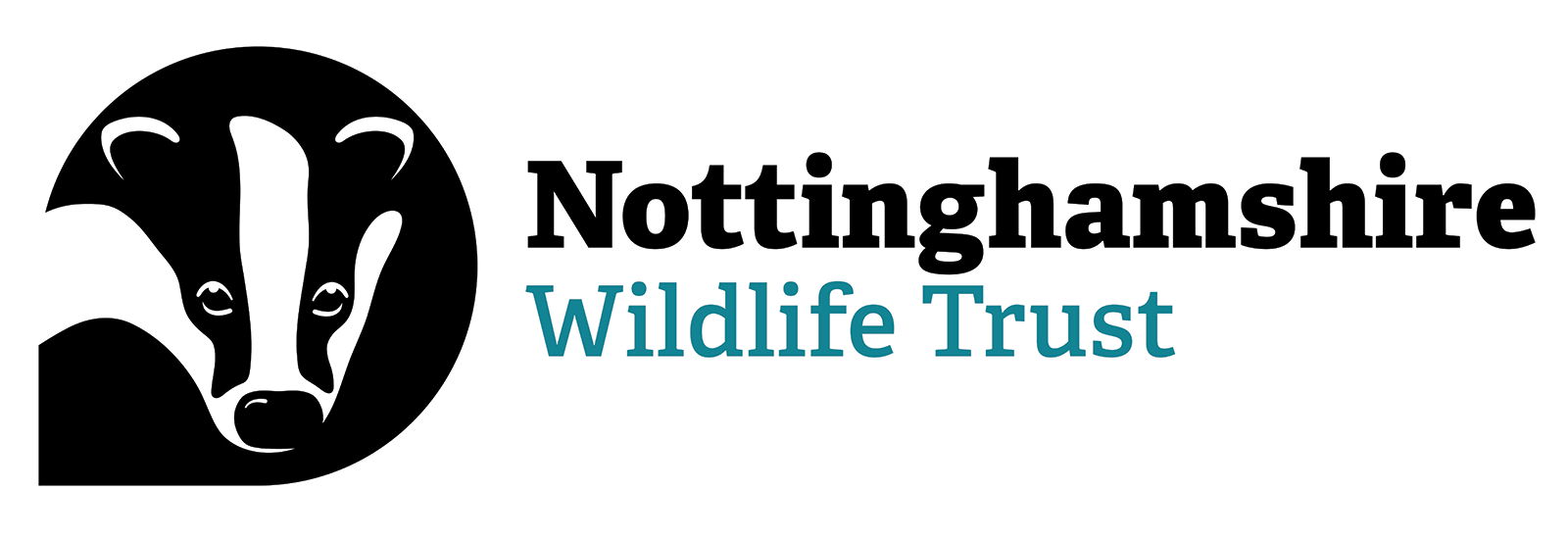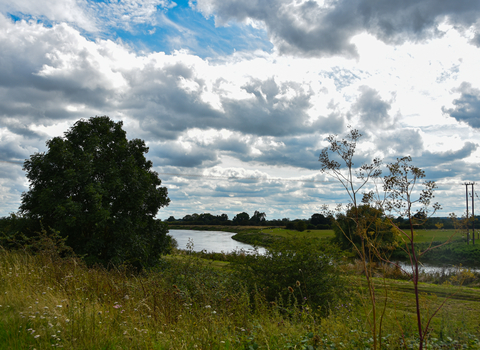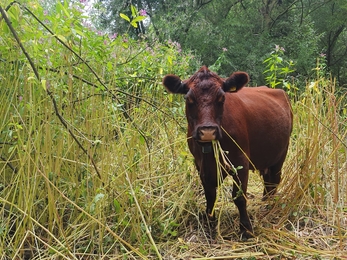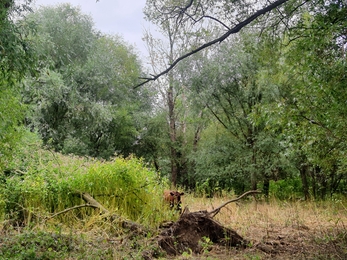How we're helping habitats
Thriving in a Wilder Trent is already taking action for nature. This projects consists of a number of works around the River Trent area to help a wide variety of species and their habitats. For more info on the proposed and ongoing works, keep reading below!
Summary
Here are some of the things we're working on as part of Thriving in a Wilder Trent:
-
25 “No Fence” collars
-
Purchase of roboflail
-
Tern rafts at various sites
-
Wader island at Besthorpe Nature Reserve
-
Coppicing and pollarding willow at Girton, Farndon and Attenborough Nature Reserve.
-
Scrub management (using mulcher)
-
Deer fencing at Attenborough Nature Reserve
-
Fencing at Besthorpe, Spalford and Muskham nature reserves
-
Hedgerow management at West Burton Meadow
-
Landowner advice and small grant scheme.
NoFence collars in action at Farndon Willow Holt
September 2025
The Himalayan Balsam jungle at Farndon Willow Holt was completely overgrown and impossible to walk through. But after just a couple of weeks of letting the cattle roam the jungle, you can see an amazing transformation.
The area was completely overgrown and they ploughed through it and eaten it and opened it up.
This wouldn't have been possible if we didn't have the nofence collars as the fencing on the far side of the jungle was rotten and lay completely flat on the floor.
The cattle are well trained and respected the collars and not one escaped and they have done an amazing job opening up the site.
Willington Wetlands, Derbyshire
May 2025
Nottingham Wildlife Trust has partnered up with Derbyshire Wildlife Trust to support habitat development work at Willington Wetlands. The site identified was permanent semi-improved grassland of very low wildlife value. The project sought to create permanent and seasonal wet grassland habitat for plants, insects and wading birds by creating new scrapes.
Multiple scrapes have now been excavated in line with EA consent requirements and the pictures attached show the extend of the habitat creation. Over the next few months, Derbyshire Wildlife Trust will be hosting events at Willington Wetlands to observe and celebrate the creation of the new complimentary habitat that will benefit the wetland area.
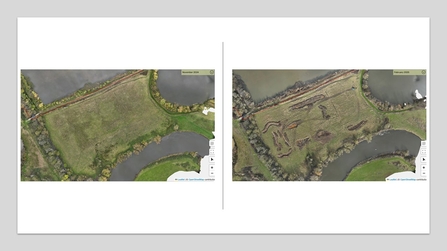
Aerial view before and after
Before and after aerial views
Langford Lowfields
April 2025
RSPB are one of the partners in our Species Survival Fund project, Thriving in a wilder Trent.
The project will enhance and expand reedbed habitat at Langford Lowfields by translocating mature reed from a disused silt lagoon onto a bare island. To support sustainability, a new polytunnel will be constructed allowing for annual propagation of 10,000-15,000 seedlings to be planted by volunteers. Once the reeds are translocated to the island, the young plants will be protected from grazing wildfowl by protective fencing.
The impressive 60-foot polytunnel was erected in February, and RSPB volunteer teams have been working hard to level the floor and put the geotextile layer down. Next stage will be to put up the rabbit-proof fence around the outside of the tunnel, spread a layer of gravel inside and then put up the workbench shelf along one inner side of the tunnel. This will be used as a raised work area for filling the seed trays with compost and Phragmites seed. The tunnel has green netting along both sides, which acts as a vent and can open and shut to control the temperature. It additionally has double sliding doors at each end to allow easy access when moving in and out and provides additional ventilation if required. The previous tunnel hit 60 degrees on more than one occasion, to the detriment of the seedling being grown inside.
RSPB have also purchased 5 large plastic propagation bays which hold water and in which the seed trays containing the reed seedlings will live, as well as 2 new 1000L water tanks, which will be filled with water from the reedbed and then used to irrigate the seedlings.
RSPB won a prestigious award for Langford Lowfields site being the most impressive quarry restoration at the Mineral Products Association - Quarry & Nature Event in March.
Tern rafts
May 2025
Nottinghamshire Wildlife Trust have installed four new double tern rafts on sites across the County.
Tern rafts provide valuable nesting platforms on the water, away from predators. Common terns migrate from West and South Africa and usually arrive at sites in Nottinghamshire from mid-April. They like to nest on gravelly beaches and islands, so we have used cockle shells in the base of the tern rafts to welcome these noisy visitors.
New tern rafts have been installed by Nottinghamshire Wildlife Trust rangers, working with local volunteers at Skylarks Nature Reserve, Besthorpe Nature Reserve, Netherfield Lagoons and North Muskham Lake in time for this season's arrivals. There are also tern rafts at Attenborough Nature Reserve that can be seen from the viewing platform.
25th March 2025
We are busy preparing for the arrival of terns from the coast of Spain and Africa. They arrive from the middle of April, departing again in late summer.
We are currently delivering new tern rafts to 4 different sites in Nottinghamshire: Besthorpe, Skylarks, North Muskham and Netherfield Lagoons.
Rangers and volunteers are busy getting them ready so that when the terns arrive, they have a safe place to lay their eggs. These delightful silvery-grey and white birds have long tails which have earned them the nickname 'sea-swallow'. They have a graceful, floating flight and frequently hover over water before plunging down for fish.

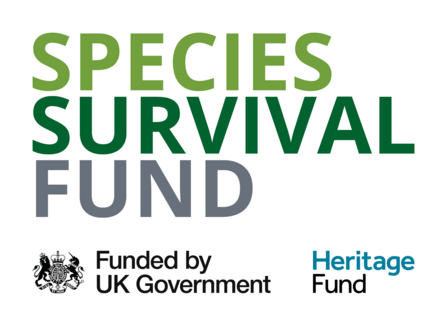
This project is funded by the Government's Species Survival Fund. The fund was developed by Defra and its Arm's-Length Bodies. It is being delivered by The National Lottery Heritage Fund in partnership with Natural England and the Environment Agency.
